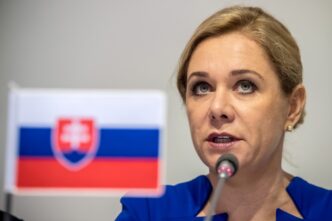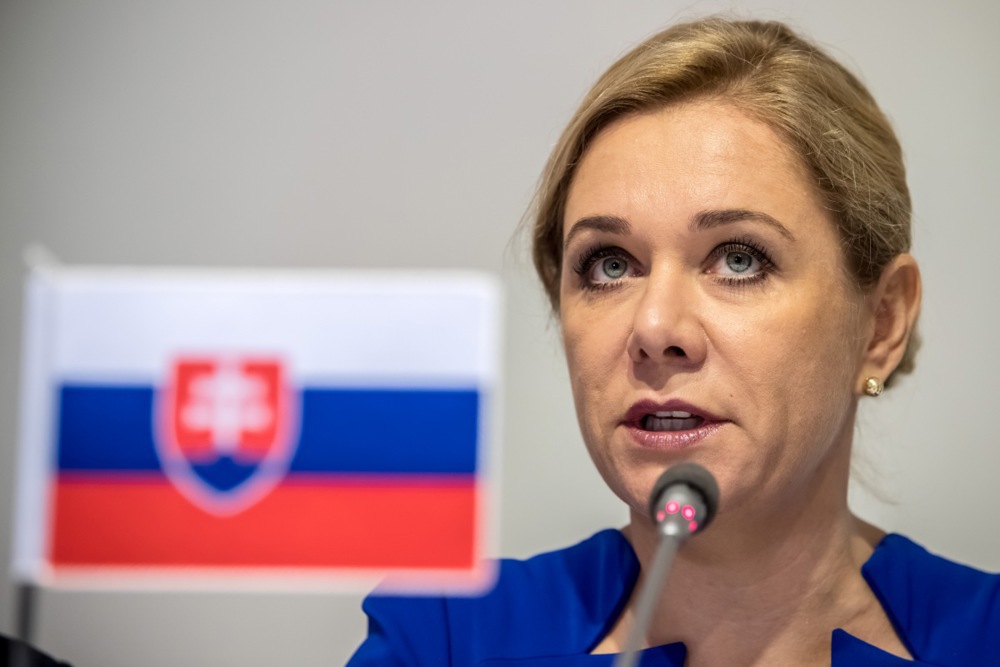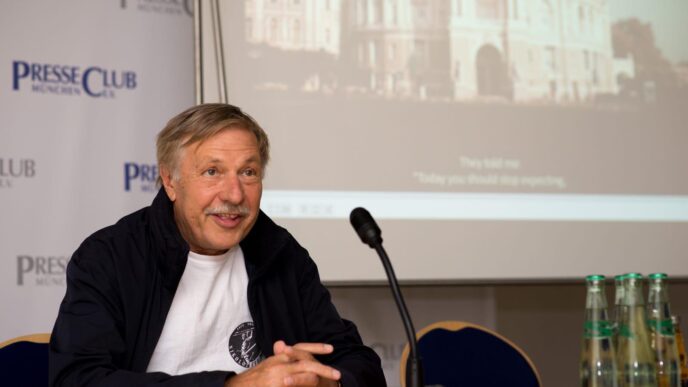Slovakia is bracing for economic repercussions following U.S. President Donald Trump’s announcement of a 25% tariff on all cars not manufactured in the United States. The move has triggered alarm in Bratislava, given Slovakia’s status as one of the world’s top vehicle producers per capita.
Slovak Economy Minister Denisa Saková (Hlas-SD) expressed serious concern over the development, warning that Slovakia would be among the three hardest-hit countries in the European Union.
“We hope these tariffs will be postponed, much like in the cases of Mexico and China. If not, we will have to find a way to mitigate their impact,” Saková stated during a press conference on Thursday.
Slovakia’s Automotive Dominance at Risk
With a population of 5.4 million, Slovakia produced roughly one million vehicles last year, making the automotive sector a pillar of its economy. The industry directly employs around 200,000 workers and is home to major global manufacturers, including Kia Motors, Jaguar Land Rover, Stellantis, and Volkswagen. Volvo is also set to open a plant in the near future.
Saková noted that two of these manufacturers primarily serve the European market, meaning they would be somewhat shielded from the tariffs. However, the other two, which export vehicles to the U.S., face a more severe impact.
She emphasized that if the tariffs are enforced, Slovakia will await the European Union’s retaliatory measures and rely on EU Trade Commissioner Maroš Šefčovič to negotiate a resolution.
Political Opposition Demands Action
Slovakia’s opposition parties have also raised alarms over the potential economic fallout. Progressive Slovakia (PS/RE) and Freedom and Solidarity (SaS) criticized the government for not doing enough to prevent the situation. They urged Prime Minister Robert Fico (Smer-SD/NI) to push for EU intervention, attract new investments, and create a more business-friendly environment to counteract the effects of the tariffs.
Critics also accused Fico of failing to leverage his recent U.S. visit to prevent the tariffs. Opposition leader Branislav Gröhling (SaS) dismissed Fico’s February meeting with Elon Musk as mere political posturing.
“Fico rushed to the U.S. after meeting Putin, just to take a photo with Musk. He claimed to be negotiating on tariffs, yet there is no outcome,” Gröhling remarked.
Former Prime Minister Eduard Heger and members of his Democratic Party echoed these concerns, accusing Fico of neglecting Slovakia’s economic priorities.
“For months, he has focused on irrelevant matters while ignoring the backbone of our economy: the automotive industry,” Heger stated.
Awaiting Retaliatory Measures
As the European Union considers its response, Slovakia faces mounting uncertainty over how the tariffs will impact its automotive exports. With major car manufacturers and thousands of jobs on the line, the country’s economic stability hangs in the balance, making the outcome of upcoming trade negotiations critical to its future.
















